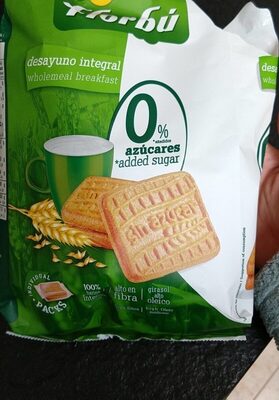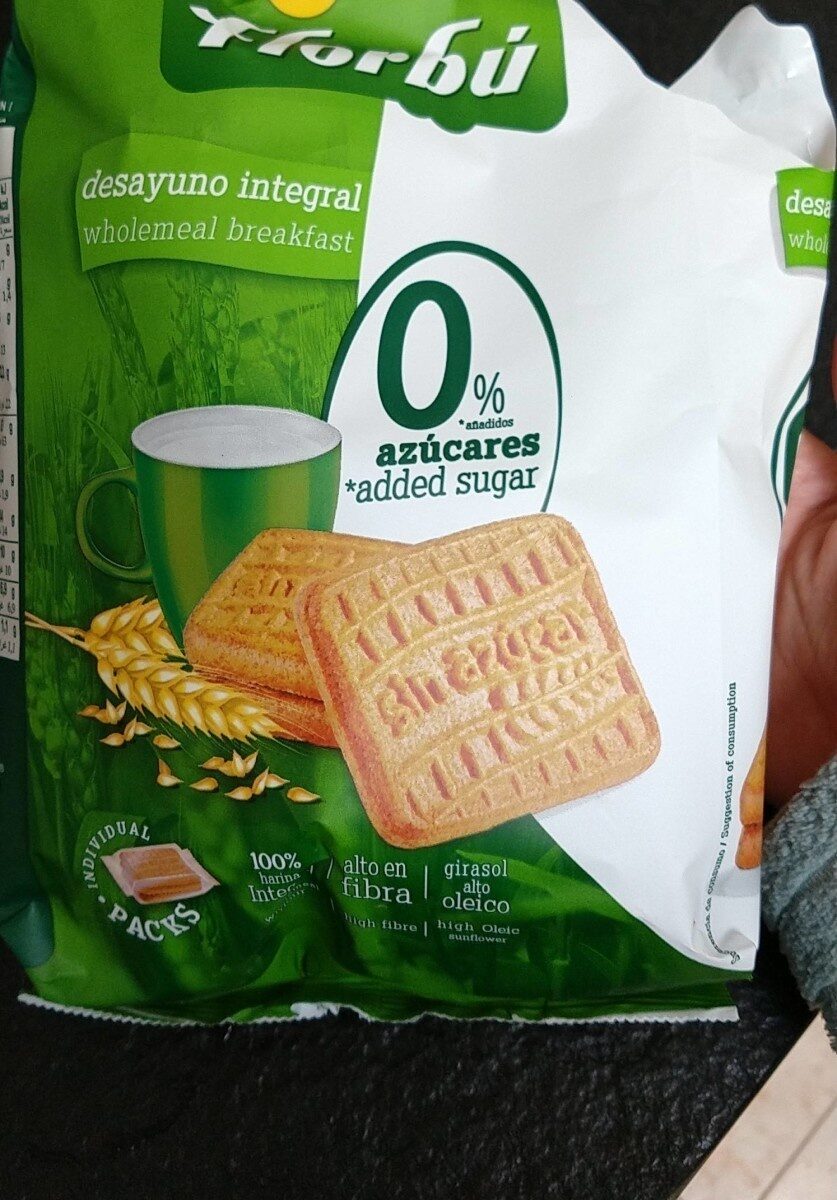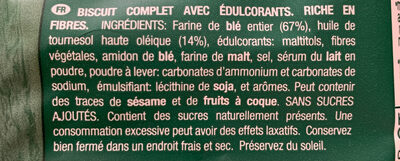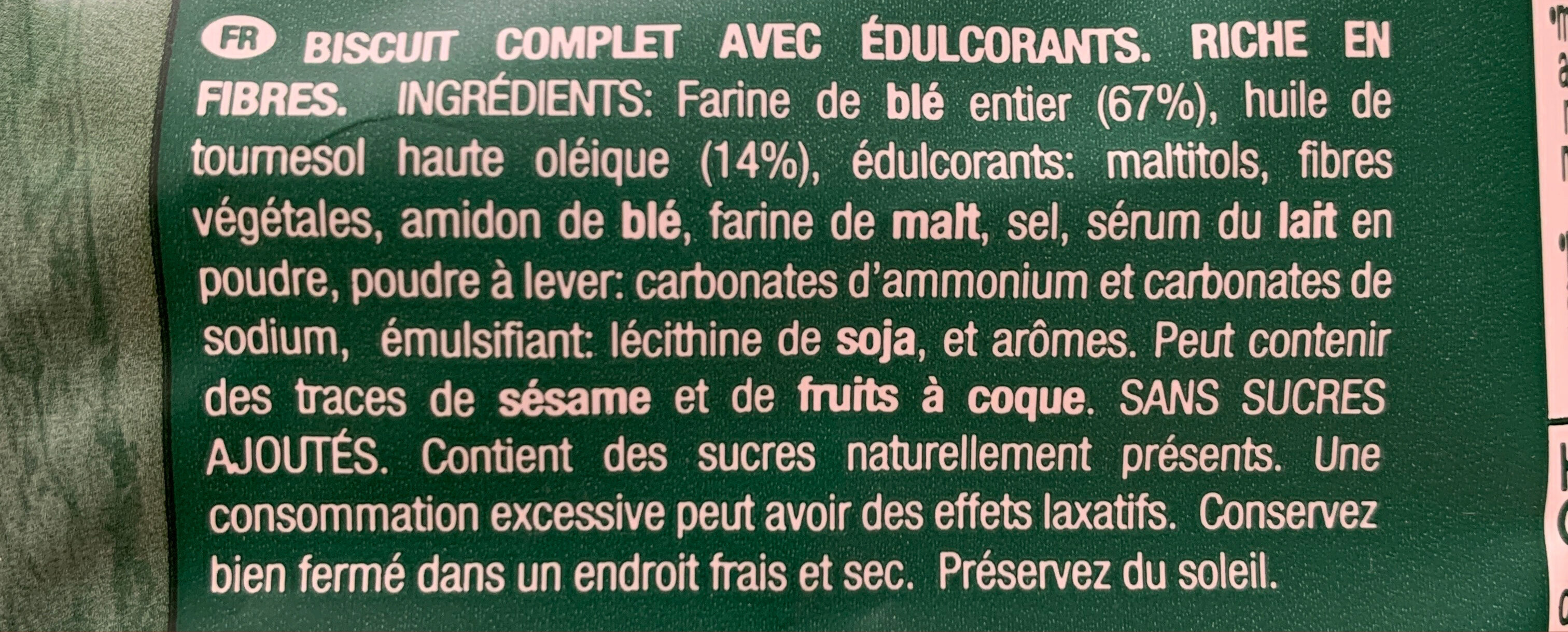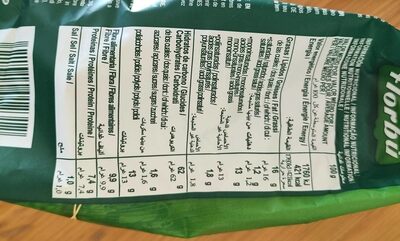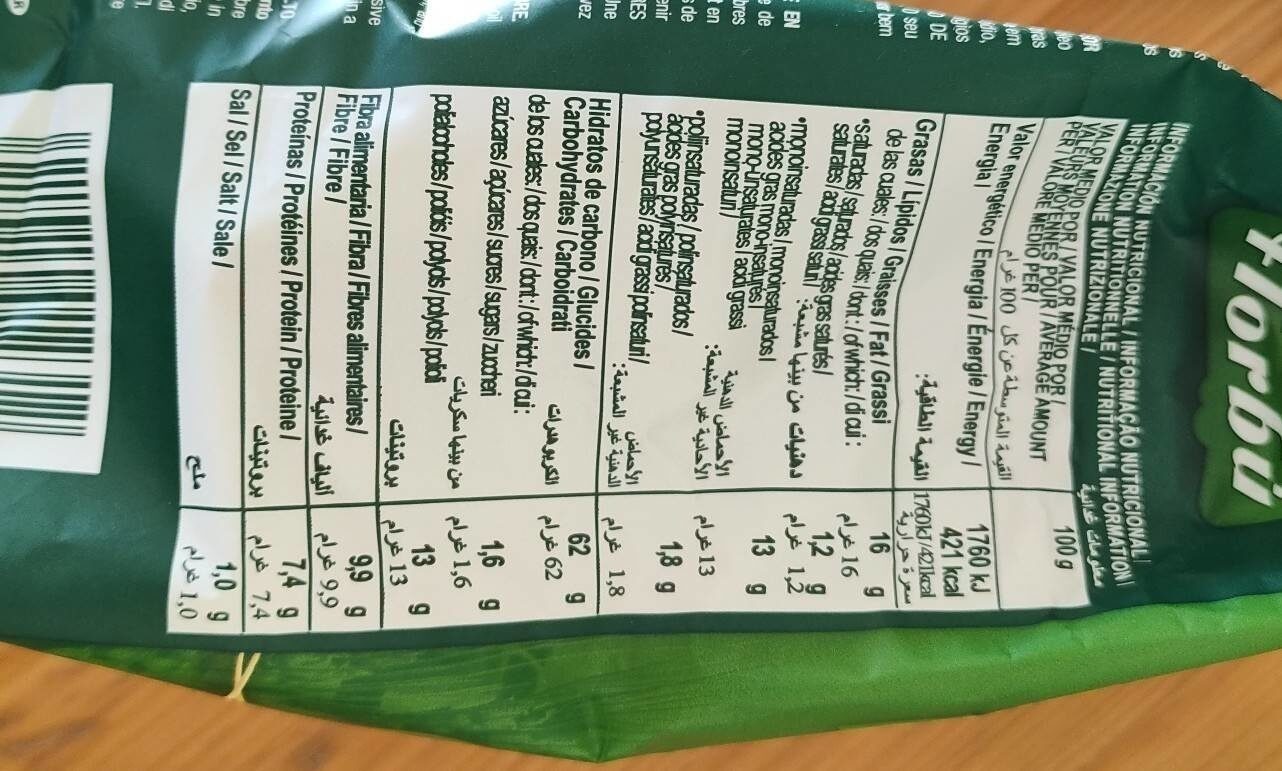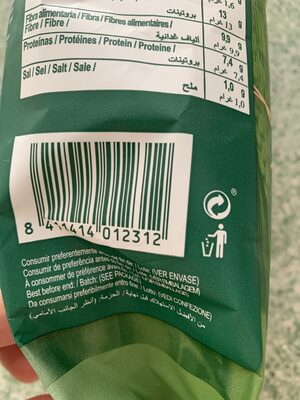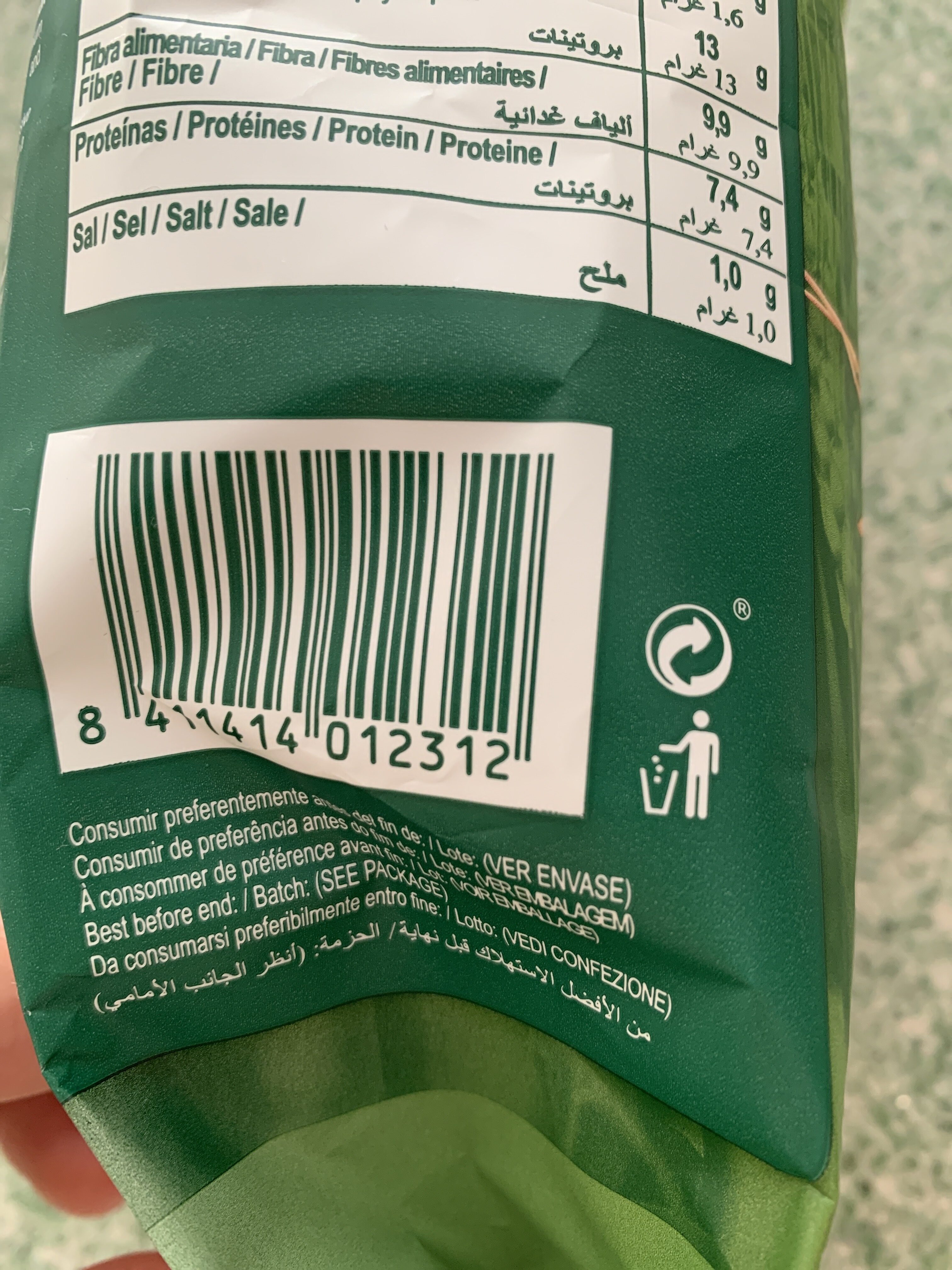Desayuno integral - Florbú - 350 g
This product page is not complete. You can help to complete it by editing it and adding more data from the photos we have, or by taking more photos using the app for Android or iPhone/iPad. Thank you!
×
Barcode: 8411414012312 (EAN / EAN-13)
Quantity: 350 g
Brands: Florbú
Categories: Snacks, Sweet snacks, Biscuits and cakes, Biscuits
Labels, certifications, awards: Excessive consumption can have laxative effects, No added sugar
Matching with your preferences
Report a problem
Data sources
Product added on by kiliweb
Last edit of product page on by stephane.
Product page also edited by acuario, ecoscore-impact-estimator, elcoco, ffk, hxsu, musarana, openfoodfacts-contributors, paularm, roboto-app, smoothie-app, teolemon, yuka.B7dwZtKMAscQA_PgzIcR-GGGOP_dIcUFEVgAog, yuka.UnZrQVNZQUhxZXN0bnNRNXhDejc1T2hrNm9Hc1Ywcm1EK0FiSVE9PQ, yuka.sY2b0xO6T85zoF3NwEKvlh1EbefkpCPnBzj6pW6W_I22N7vPTf1V4JbhOKs, yuka.sY2b0xO6T85zoF3NwEKvlkhiCsf4kj7CCB3nvmmu9MufA77UeeBTurLlPas, yuka.sY2b0xO6T85zoF3NwEKvllxJf8XQqDXlKRDSomS5-vbWMYflR9Nb7tH3L6g, yuka.sY2b0xO6T85zoF3NwEKvlmpBfcHR-xvaOgfguReswd6sDaXTZPZK5oLAKqs, yuka.sY2b0xO6T85zoF3NwEKvlnUZbofnu27kFBv5knGJnYakL6PCb8lP-5fDHqs, yuka.sY2b0xO6T85zoF3NwEKvlnxCcYXPnjzgGk3up22z6Y-sNLruOcxe2I73HKo.
